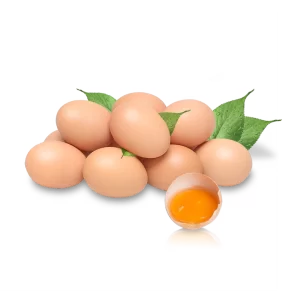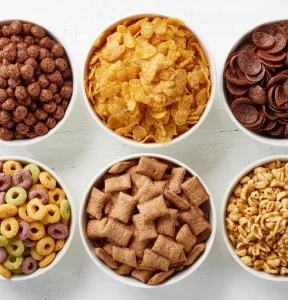Complete List of Vitamin A Foods
Vitamin A is an essential nutrient that our bodies require to function properly. It plays a crucial role in various bodily functions, such as vision, immune function, and cell growth and differentiation. The good news is that there are plenty of foods that are rich in this nutrient, making it easy to ensure that you’re meeting your daily requirements. In this article, we’ll explore some of the best vitamin A foods and the details about how they can benefit your health.
1. Liver

Liver is one of the most nutrient-dense foods out there, and it’s a great source of vitamin A. A 3-ounce serving of beef liver contains around 22,000 IU of vitamin A, which is more than four times the daily recommended intake for adults. Chicken liver is also a good source of vitamin A, with a 3-ounce serving containing around 7,000 IU.
2. Fish

Fish is another excellent source of vitamin A, particularly the oily varieties such as salmon, mackerel, and herring. A 3-ounce serving of cooked Atlantic salmon contains around 1,100 IU of vitamin A, while a 3-ounce serving of cooked mackerel contains around 600 IU. Fish is also a great source of omega-3 fatty acids, which are beneficial for heart health.
3. Eggs

Eggs are a versatile and nutrient-dense food that is a great source of vitamin A. A large egg contains around 80 IU of vitamin A, which may not seem like a lot, but it can add up quickly. Eggs are also a great source of protein and other nutrients like choline, which is important for brain health.
4. Dairy Products

Dairy products like milk, cheese, and yogurt are also good sources of vitamin A. A cup of whole milk contains around 250 IU of vitamin A, while a cup of plain yogurt contains around 150 IU. Cheese is also a good source of vitamin A, with a 1-ounce serving of cheddar cheese containing around 140 IU.
5. Leafy Greens

Leafy greens like spinach, kale, and collard greens are packed with nutrients, including vitamin A. A cup of cooked spinach contains around 1,000 IU of vitamin A, while a cup of cooked collard greens contains around 600 IU. These greens are also a great source of other nutrients like iron and calcium.
6. Orange Vegetables

Orange vegetables like carrots, sweet potatoes, and pumpkin are some of the best sources of vitamin A. A medium-sized sweet potato contains around 21,000 IU of vitamin A, while a medium-sized carrot contains around 8,000 IU. These vegetables are also rich in fiber and other nutrients like potassium and vitamin C.
7. Fruits

Some fruits are also good sources of vitamin A, particularly those that are orange or yellow in color. One medium-sized mango contains around 180 IU of vitamin A, while a medium-sized papaya contains around 200 IU. Cantaloupe and apricots are also good sources of vitamin A.
8. Fortified Foods

Many foods, particularly processed and packaged ones, are fortified with vitamin A to help increase their nutritional value. Some examples of fortified foods include breakfast cereals, milk, and margarine. It’s important to note that while fortified foods can help you meet your daily requirements for vitamin A, they should not be relied upon as the sole source of this nutrient in your diet.
9. COD Liver Oil

Cod liver oil is an excellent source of both vitamin A and vitamin D. A teaspoon of cod liver oil contains around 4,500 IU of vitamin A, which is more than the daily recommended intake for adults. While cod liver oil is rich in nutrients, it’s also high in calories, so it’s important to use it in moderation.
10. Broccoli

Broccoli is a nutrient-dense vegetable that is also a good source of vitamin A. A cup of cooked broccoli contains around 1,200 IU of vitamin A, making it an excellent choice for those looking to increase their intake of this nutrient.
11. Red Bell Peppers

Red bell peppers are another great source of vitamin A, with one medium-sized pepper containing around 1,600 IU. They are also high in vitamin C, which can help boost immune function and improve skin health.
What Are The Functions of Vitamin A Foods in Our Body?
Vitamin A is a crucial nutrient that plays several important roles in the human body. Here are some of its key functions:
- Vision: Vitamin A is essential for maintaining good vision, especially in low-light conditions. It is a component of rhodopsin, a protein in the eyes that allows us to see in dim light. A deficiency in vitamin A can lead to night blindness and other vision problems.
- Immune System Support: Vitamin A is vital for the proper functioning of the immune system. It helps in maintaining the integrity of the skin and mucous membranes, which act as barriers to prevent pathogens from entering the body. Adequate vitamin A levels enhance the body’s ability to fight infections.
- Cell Growth and Differentiation: Vitamin A is involved in the regulation of cell growth and differentiation. It supports the growth and development of cells, tissues, and organs, ensuring they mature properly and function optimally.
- Reproduction and Fetal Development: Vitamin A is essential for reproductive health in both men and women. During pregnancy, it is crucial for the development of the fetus, especially in the formation of the eyes, heart, lungs, and other organs.
- Bone Health: Vitamin A contributes to bone growth and development. It helps in maintaining healthy bones and teeth by promoting the synthesis of certain proteins necessary for bone structure.
- Antioxidant Properties: Vitamin A acts as an antioxidant, protecting cells from damage caused by free radicals. Free radicals can lead to oxidative stress, which is linked to various chronic diseases and aging. By neutralizing these free radicals, vitamin A helps in reducing the risk of such conditions.
- Skin Health: Vitamin A supports skin health by promoting the growth and repair of skin cells. It is often used in skincare products and treatments to address various skin issues, including acne and wrinkles.
It’s important to note that while vitamin A is essential for health, excessive intake can be harmful. A balanced diet that includes a variety of foods rich in vitamin A, such as fruits, vegetables, dairy products, and fish, can help maintain optimal levels of this essential nutrient in the body.
What Food Is Highest in Vitamin A?
The food that is highest in vitamin A is liver, particularly beef liver. A 100-gram serving of cooked beef liver contains approximately 6,582 international units (IU) of vitamin A, which is more than seven times the recommended daily intake for adults. Other animal sources that are high in vitamin A include cod liver oil, salmon, and egg yolks. Plant-based sources of vitamin A include sweet potatoes, carrots, spinach, and kale, but the amount of vitamin A in these foods is usually lower compared to animal sources.
What Are The 5 Major Functions of Vitamin A?
Vitamin A plays several important roles in maintaining good health, including the following five major functions:
- Vision: Vitamin A is essential for good vision, particularly in low light conditions. It is required for the production of rhodopsin, a pigment found in the retina that helps the eyes to adapt to changes in light.
- Immune Function: Vitamin A is important for maintaining a healthy immune system. It helps to regulate the growth and differentiation of immune cells, and is required for the production of antibodies that help to fight off infections.
- Skin Health: Vitamin A is essential for maintaining healthy skin. It helps to regulate the growth and differentiation of skin cells, and is required for the production of sebum, an oily substance that helps to keep the skin moisturized.
- Growth and Development: Vitamin A is important for growth and development, particularly during fetal development and childhood. It is required for the development of organs such as the heart, lungs, and kidneys, and is important for bone growth and tooth development.
- Reproduction: Vitamin A is required for normal reproductive function in both men and women. It is important for the development and maintenance of the reproductive organs, and is required for the production of sperm and eggs.
Overall, vitamin A is a vital nutrient that plays a critical role in many aspects of health, including vision, immune function, skin health, growth and development, and reproduction.
Conclusion
In conclusion, vitamin A is an essential nutrient that plays a crucial role in various bodily functions. By incorporating these vitamin A-rich foods into your diet, you can ensure that you’re getting enough of this important nutrient. Whether you prefer animal-based foods like liver and fish or plant-based foods like leafy greens and orange vegetables, there are plenty of options to choose from. So go ahead and enjoy a variety of vitamin A-rich foods to support your overall health and well-being.
















